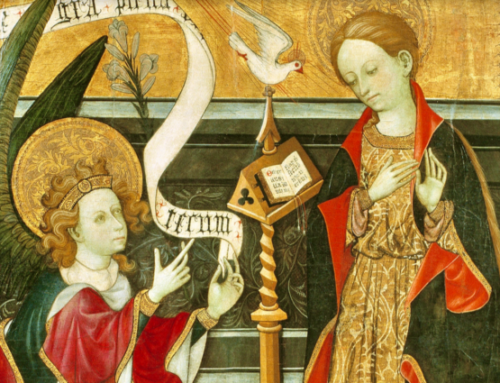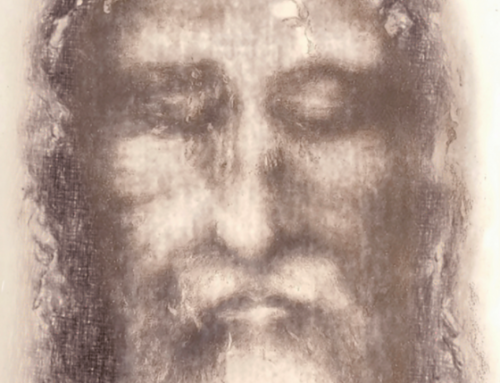One of the best short poems ever written enfolds the classic Latin call to prayer at the end of its lines:
Wherever the Catholic sun doth shine,
There’s always laughter and good red wine.
At least, I’ve always found it so.
Benedicamus Domino!
Eminently worthy of being committed to memory, this brief masterpiece by Hilaire Belloc can be deployed on many a happy occasion. There are not many better ways to raise your glass in a toast than this. If you find that you have enough occasions on which to habitually deploy this toast, your habitual companions may eventually take to shouting out the last line along with you: “Benedicamus Domino!” (“Let us bless the Lord!”)
Such activity, it seems to me, would become part of the activity of “virtuous drinking.” Lest you think I am not being serious about this proposal, may I remind you that there is a serious body of philosophical literature devoted to discerning what drinking in moderation is, and what such virtuous drinking has to do with living the good life.
The title of one of the best of these books may allude to Monty Python’s classic drinking song about drunken philosophers, but I Drink Therefore I Am is a serious and seriously delightful book by the philosopher Roger Scruton that may help teach you about virtuous drinking. Scruton writes:
“A great wine is a cultural achievement, not available to Protestants, atheists or believers in progress, since it depends on the survival of local gods. One of the greatest goods bestowed on France by the Catholic Church is to have offered asylum to the battered gods of antiquity, to have fitted them out with the clothes of saints and martyrs, and to have cheered them with the drink that they once brought down from heaven to us all. That, in a nutshell, is why French wines are the best.”
 The debate about which wines are best is one which can only be seriously engaged with a glass in hand. On that topic, we should also become familiar with the following poem, which invokes the wine of a particular time and place. It is another poem by Belloc, and while it may be more difficult to commit a poem of this length to memory, I assure you that it would be a worthwhile and virtuous activity.
The debate about which wines are best is one which can only be seriously engaged with a glass in hand. On that topic, we should also become familiar with the following poem, which invokes the wine of a particular time and place. It is another poem by Belloc, and while it may be more difficult to commit a poem of this length to memory, I assure you that it would be a worthwhile and virtuous activity.
While the first poem I quoted from Belloc for you could be deployed on sunny days, this particular drinking song could be deployed on cloudy days:
On the Excellence of Burgundy Wine
My jolly fat host with your face all a-grin,
Come, open the door to us, let us come in.
A score of stout fellows who think it no sin
If they toast till they’re hoarse, and drink till they spin,
Hoofed it amain
Rain or no rain,
To crack your old jokes, and your bottle to drain.
Such a warmth in the belly that nectar begets
As soon as his guts with its humour he wets,
The miser his gold, and the student his debts,
And the beggar his rags and his hunger forgets.
For there’s never a wine
Like this tipple of thine
From the great hill of Nuits to the River of Rhine.
Outside you may hear the great gusts as they go
By Foy, by Duerne, and the hills of Lerraulx,
But the rain he may rain, and the wind he may blow,
If the Devil’s above there’s good liquor below.
So it abound,
Pass it around,
Burgundy’s Burgundy all the year round.
A few things are worth noticing about this poem. In the first stanza, which is relatively straightforward, there is the wonderful archaic adverb, “amain.” This means: “with great strength, speed, or haste.” So, with that adverb, we are introduced to the dedication of these “stout fellows” who have “hoofed it amain” through the weather outside to the home of their host, in order “his bottle to drain.”
 At this point, the state of the weather is ambiguous—“rain or no rain”—but we are introduced to the certainty that these “stout fellows,” no matter the weather, will “hoof it amain” if there is drink and merriment to be found. There is the suggestion, however, that it is in fact raining outside, since the phrase “rain or no rain” sounds much like a direct quote. We can imagine it among the words of the first fellow to knock at the door, as he greets his host: “Rain or no rain, here we are!”
At this point, the state of the weather is ambiguous—“rain or no rain”—but we are introduced to the certainty that these “stout fellows,” no matter the weather, will “hoof it amain” if there is drink and merriment to be found. There is the suggestion, however, that it is in fact raining outside, since the phrase “rain or no rain” sounds much like a direct quote. We can imagine it among the words of the first fellow to knock at the door, as he greets his host: “Rain or no rain, here we are!”
For those of you who may have trouble committing the entire poem to your memory in this age of Google and Facebook, and its concomitantly un-Homeric memory spans, surely you can resolve to commit to memory these wonderful two lines from the second stanza:
For there’s never a wine
Like this tipple of thine
After all, that rhyming couplet could be deployed on many an occasion to compliment your hosts on their marvelous selection of wine. The delightful phrase “tipple of thine” is guaranteed to add enriched merriment to the proceedings, especially if hearts have been suitably prepared for merry wordplay by sufficient preparatory tippling.
You may even find that the phrases here increase in their enjoyment if multiple voices are on hand to echo that they concur with your opinion. The repetition of the words “there’s never a wine / Like this tipple of thine,” when circulating around the table like a beloved bottle, could become a spontaneous ritual of increased communal approbation.
 The only puzzling thing in this poem seems to be the shocking line in the third stanza: “If the Devil’s above there’s good liquor below.” We are unaccustomed to hearing the Devil to be spoken of as being “above.” After all, Hell is proverbially “below,” and it is Heaven that is proverbially located in the upper regions of the sky.
The only puzzling thing in this poem seems to be the shocking line in the third stanza: “If the Devil’s above there’s good liquor below.” We are unaccustomed to hearing the Devil to be spoken of as being “above.” After all, Hell is proverbially “below,” and it is Heaven that is proverbially located in the upper regions of the sky.
But the mild shock of these words will induce us to pick up on the suggestion of rain in the first stanza, and then tie that immediately to the line that precedes the line about the Devil, which speaks of “the rain he may rain, and the wind he may blow.” Surely, the situation alluded to by the poem is a bout of nasty weather. Nonetheless, our “stout fellows” have braved the elements, in order to arrive at their happy situation of stormy conviviality.
The lovely suggestion of this little drinking song is that no matter how unreliable and mutable the weather may be, there is one constant with which joy may abide: “Burgundy’s Burgundy all the year round.”
The serious counterpart to this heartening observation is that virtue may be similarly and advantageously paired with the vicissitudes of fortune. No matter what external circumstances may bring, no matter how cloudy the skies, virtue and friendship are as constant as Burgundy being Burgundy. So why not incarnate such spiritual constants, by making them manifest around the table with your friends, whether “rain or no rain”?
The Imaginative Conservative applies the principle of appreciation to the discussion of culture and politics—we approach dialogue with magnanimity rather than with mere civility. Will you help us remain a refreshing oasis in the increasingly contentious arena of modern discourse? Please consider donating now.








Leave A Comment